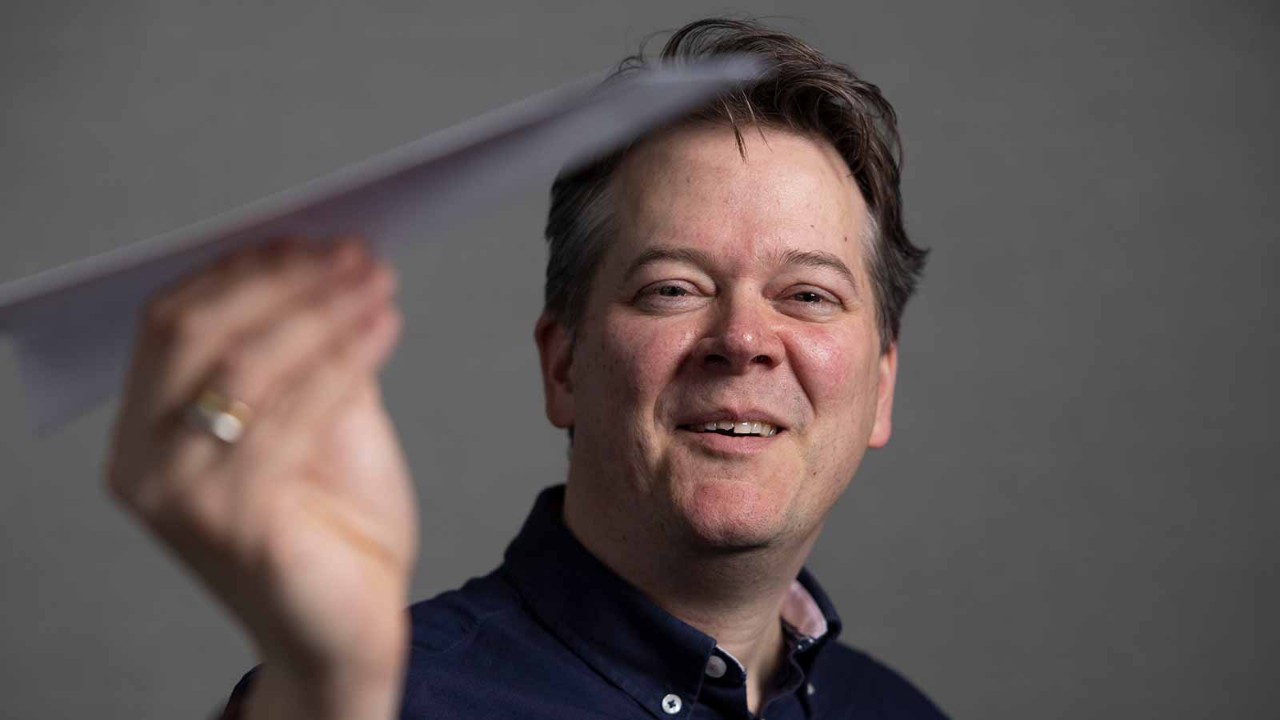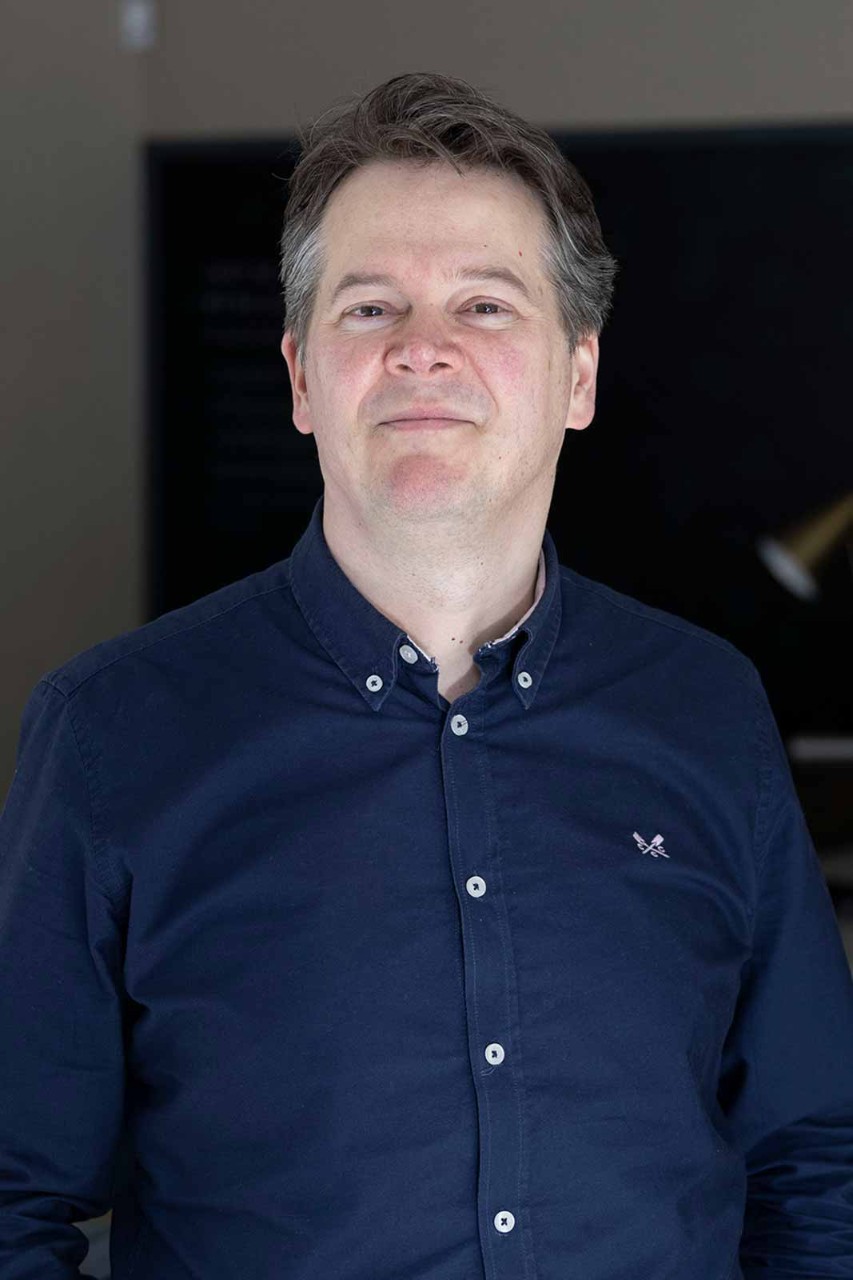
Few businesses have the glamour of a private jet operator, flying very wealthy clients to exciting destinations in £50m-aircraft.
‘It is such a unique industry, offering a highly desirable area of luxury travel,’ says Stuart Manning FCCA, finance director of Victor, a fly-on-demand company that connects those who can afford to fly on private aircraft with businesses that operate them. These planes range from small turboprops to ‘head of state’ versions of commercial airliners.
‘We outsourced much of our finance function to Ukraine and had to relocate some Ukrainian staff to the UK’
It is one of the few sectors that did well during the pandemic, experiencing significant uplift at a time when commercial flights were banned or severely restricted. ‘Private travel has been on the rise since 2019. We’ve seen a 25% increase in the UK in the last three years,’ says Manning.
Victor’s furloughed staff had to be rushed back to work to cope with the demand. New clients quickly got used to the high level of service.
Luxury experience
‘The flight management team do the whole thing for you: pick-ups, transfers, having the particular champagne you like, onward travel to your destination, even if that’s on the side of a mountain,’ says Manning. ‘It is highly efficient, with no waiting at security or passports. Clients have a seamless luxury experience.’
Private flying, once experienced, is hard to give up. However, as Manning admits, it is ‘super expensive’. The cost of a luxury trip is highly variable, depending on time in the air, and the physical size and age of the aircraft, with a return journey costing something around £15,000–20,000 for a light jet, £20,000–40,000 for a midsize jet, and over £50,000 for a heavy jet.
‘The customer sees the ESG certification of the fuel we use – this is very persuasive in their buying decision’

Despite recent growth, the sector has faced challenges from rising fuel costs, inflation and especially Russia’s invasion of Ukraine. ‘This was very concerning for us, as we outsourced much of our finance function to Ukraine and had to relocate some Ukrainian staff to the UK.
‘Also, nearly 10% of our work came out of Russia. Some Russians are trying to travel on different passports, which is a headache for us because of sanctions. We are very conscious of this, because the reputational damage of breaking sanctions could end our business overnight.’
However, the impact has been less than initially feared. French and German custom has grown rapidly, and the wider cost increases have not dissuaded clients. ‘Inflation never affected the top 1% of rich individuals. For many of those rich enough to travel privately, even with the increases, these costs don’t touch the sides.’
Public image
As FD, South African-born Manning says his role is ‘strategic, all the time’. Victor’s major challenge is not financial, but public relations. A private plane is up to 14 times more polluting per passenger than a commercial aircraft, and 50 times more than train travel. Executives, politicians and celebrities have found themselves criticised for choosing to fly privately, some having their plane usage tracked by websites and apps.
Manning and his colleagues have addressed this in part by using environmentally friendly sustainable aviation fuel (SAF), which is made from products such as food waste.
‘Our unique selling point is SAF,’ he explains. ‘Before and after the pandemic we had a cohort of customers who didn’t want to fly privately because of the stigma attached to emissions, but we now have first-mover advantage, as we’ve partnered with Neste, the world’s biggest producer of this fuel. We have put both feet into SAF.’
‘If a client wants to fly within 24 hours, all the logistics have to be there’
The International Air Transport Association (IATA) want flying to be carbon-neutral by 2050 and expects 65% of this to come from SAF. ‘The customer sees the ESG certification of the fuel we use, and this is very persuasive in their buying decision – we believe it is a real game-changer. We can’t force the industry to change to SAF, but we can start shaping the background.’
Moving parts
Manning, who has been working in finance since 2002, is thoroughly enjoying his role at Victor.
‘It’s a hugely fascinating business model. We set clients up with aircraft, which sounds a simple offering, but it is highly complex, with many moving parts involved in getting plane and customer on the runway. If a client wants to fly within 24 hours, all the logistics have to be there, and most operators won’t fly unless their cash is in the bank.’
‘We are projecting US$100m in 2023 – it would be fantastic if we could achieve that’
This complexity requires very capable staff who also need to be excellent with clients. ‘Our staff are very well paid – this is a large part of the costs for us,’ explains Manning. ‘Our “rock stars” [top performers] can earn between £250,000 and £500,000 a year. They are the first point of contact with customers and the role is 24/7. They are the ones dealing with an anxious customer at 3am.’
Working model
The model is working. Victor had US$80m turnover last year, and Manning expects it to be substantially higher this year. ‘We are projecting US$100m in 2023 – it would be fantastic if we could achieve that.’ However, he admits margins are narrow. ‘We’re talking 2–3% of EBITDA.’
Victor has a substantial database of ultra-high net worth clients. A small number are customers who’ve saved up for a special flight, perhaps for an anniversary or birthday. At the other end of the scale are the billionaires for whom cost isn’t an issue. One of them flies his family annually from India to California for a holiday. He takes a specially converted 747, equipped like an ultra-luxury hotel. ‘The staff outnumber the guests,’ says Manning. ‘This flight, with the return, costs about US$1.3m.’
And as for testing the product himself, Manning says he has had only one private flight. ‘It was an “empty leg” flight. I was very lucky; it was a privilege.’
Private flying is an experience few get to enjoy, but as a service that is starting to offer sustainable solutions, growth could be set to continue.
CV
2020–present
FD at Fly Victor
2018–19
FD at luxury property developer Forbes Claymore
2017
FD at wholesale jeweller Brown & Newirth
2011–16
Group financial controller for strategy and technology at a SaaS broadcasting production company
2008–10
Financial controller at website domain and hosting company UK2 Group
2003–06
Finance manager at horseracing media rights company At The Races



